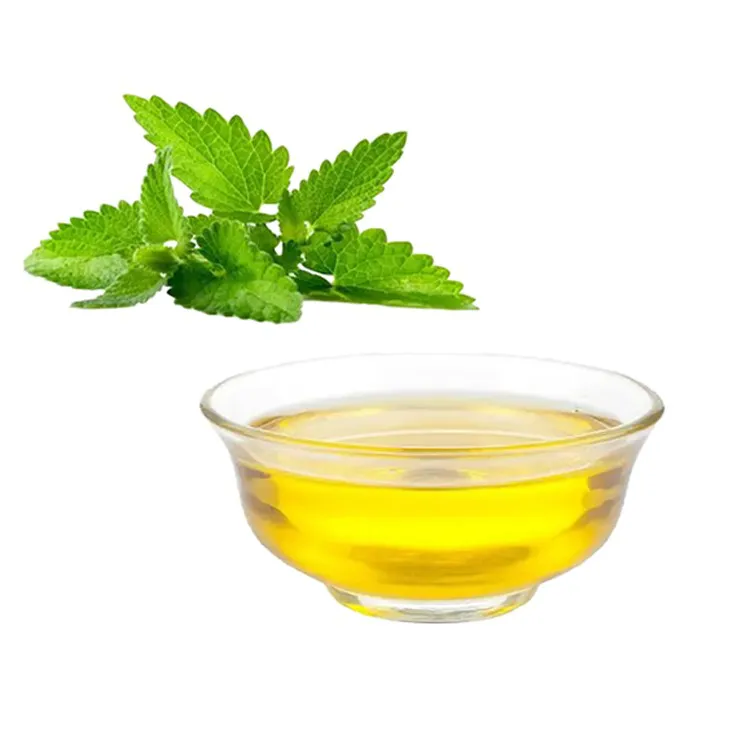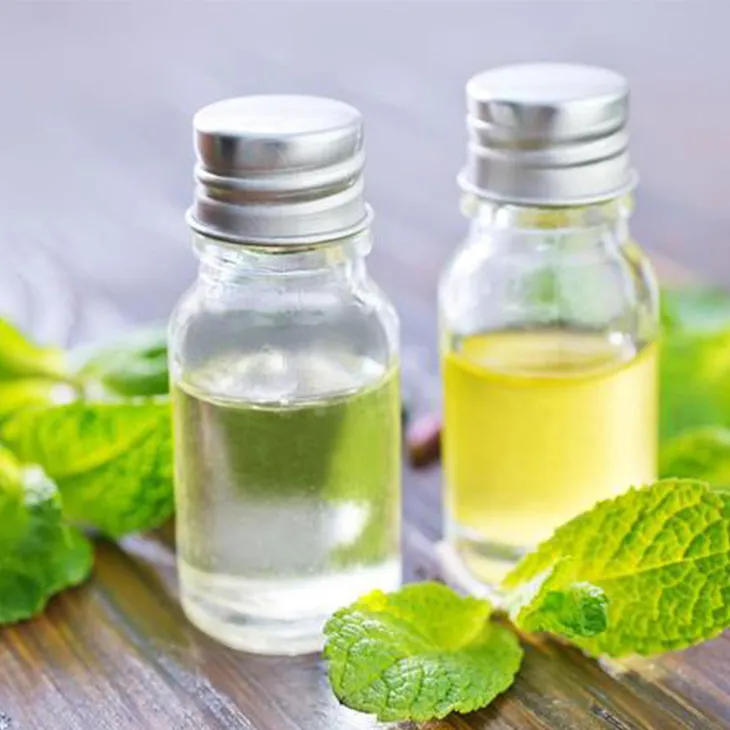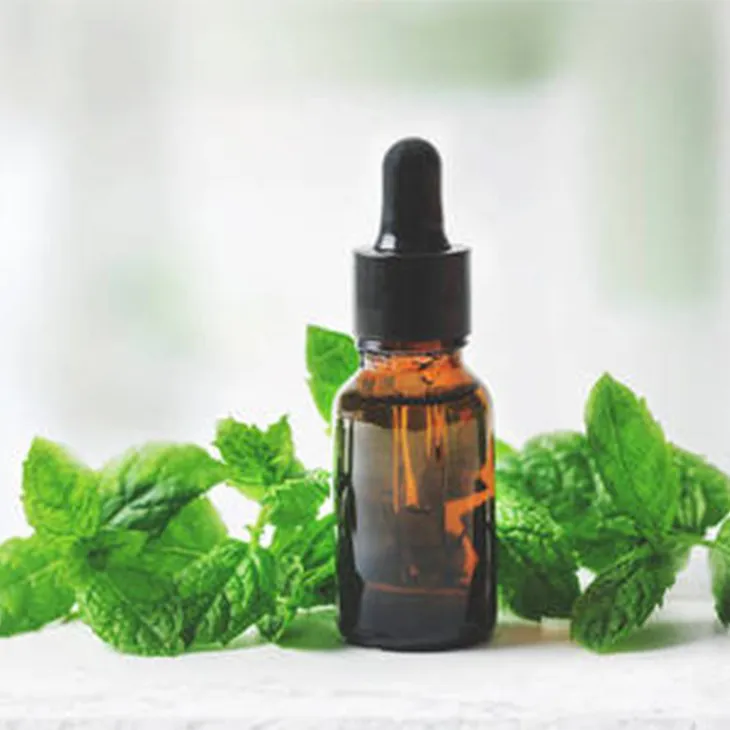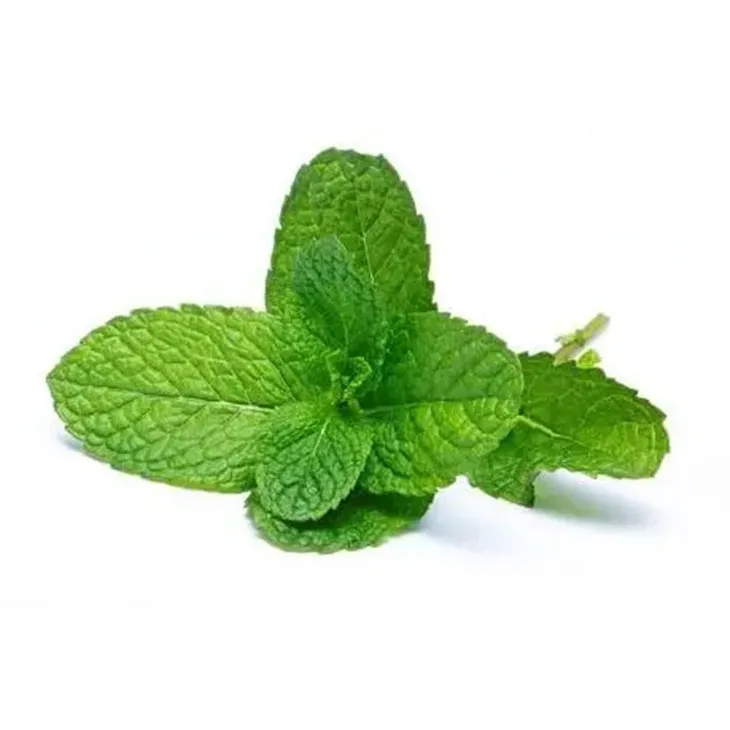- 0086-571-85302990
- sales@greenskybio.com
Organic non - transgenic peppermint oil.
2024-11-28

Introduction
Organic non - transgenic Peppermint Oil is truly a remarkable natural product. It is obtained from peppermint plants that are cultivated organically, without any genetic modification. This process ensures that the resulting oil is a pure and natural essence, free from the potential risks associated with genetically modified organisms. Peppermint Oil has a long - standing history of being used in a variety of ways, making it a highly versatile and valuable substance.

Health Benefits
Peppermint Oil offers numerous health benefits. One of its key properties is its natural analgesic effect, which makes it useful for relieving headaches. Many people have found that applying a diluted form of peppermint oil to the temples can provide relief from mild to moderate headache pain. Additionally, it has antispasmodic properties, which are beneficial for soothing digestive discomfort. When consumed in small amounts or used in aromatherapy for digestive issues, it can help to relax the muscles in the digestive tract and reduce symptoms such as cramps and bloating.

Aromatherapy Applications
In the realm of aromatherapy, the refreshing scent of peppermint oil plays a significant role. It is well - known for its ability to reduce stress. When diffused in a room or used in a personal inhaler, the aroma of peppermint oil can have a calming effect on the nervous system, helping to ease feelings of anxiety and tension. Moreover, it also aids in enhancing mental clarity. This makes it a popular choice for those who need to focus during work or study, as it can help to clear the mind and improve concentration.

Cosmetic Industry Use
The cosmetic industry has long recognized the value of peppermint oil. It is often added to various products for its beneficial properties. For example, in lip balms, it provides a cooling sensation that can soothe chapped lips. In shampoos, it can help to invigorate the scalp, leaving a refreshing feeling. When included in skin creams, it gives a cooling and refreshing effect, which is especially appealing in products designed for use during the summer or for those with oily skin. The addition of peppermint oil to these cosmetic products not only enhances their functionality but also adds a pleasant natural fragrance.

Food and Beverage Industry Use
The food and beverage industry also makes extensive use of peppermint oil. It is a popular choice for flavoring candies, providing a unique and refreshing taste that is both sweet and minty. In teas, peppermint oil can add a delicious flavor and aroma, as well as offer some of the health benefits mentioned earlier, such as aiding in digestion. It is also used in other products like chewing gums and certain desserts, where its distinct flavor can enhance the overall taste experience.
Production and Sustainability
The production of organic non - transgenic peppermint oil is an important aspect to consider. Organic farming methods are used to grow the peppermint plants. This involves avoiding the use of synthetic pesticides and fertilizers, which helps to protect the environment and maintain the purity of the peppermint oil. By choosing non - transgenic plants, producers ensure that the genetic integrity of the peppermint species is preserved.
Furthermore, the production of this type of peppermint oil supports sustainable farming practices. Organic farming promotes soil health, as it encourages the use of natural compost and crop rotation. This helps to maintain the fertility of the soil over time, reducing the need for excessive soil amendments. Additionally, sustainable farming practices also consider the well - being of local ecosystems, such as providing habitats for beneficial insects and wildlife.
Quality Assurance in Production
To ensure the high quality of organic non - transgenic peppermint oil, several measures are taken during the production process. Firstly, the selection of the peppermint plants is crucial. Only healthy and robust plants are chosen for extraction. This helps to guarantee that the oil obtained is of the best quality.
Secondly, the extraction method plays a significant role. There are different methods available for extracting peppermint oil, such as steam distillation. This method is preferred as it helps to preserve the natural properties of the oil while ensuring a pure and high - quality end product. During the extraction process, strict quality control measures are implemented to monitor factors such as temperature, pressure, and extraction time.
Finally, after extraction, the peppermint oil is carefully tested for purity and quality. This includes testing for the presence of contaminants, such as heavy metals or pesticides, which should be absent in organic non - transgenic peppermint oil. Only oils that meet the highest quality standards are then made available for use in various industries.
Conclusion
In conclusion, organic non - transgenic peppermint oil is a multi - faceted natural product with a wide range of applications. From its health - promoting properties to its use in various industries such as aromatherapy, cosmetics, food, and beverage, it has proven to be a valuable and versatile substance. The production of this type of peppermint oil not only results in a high - quality product but also supports sustainable farming practices, making it an environmentally friendly choice. As consumers become more conscious of the products they use and the impact they have on their health and the environment, organic non - transgenic peppermint oil is likely to continue to gain popularity in the future.
FAQ:
What are the main uses of organic non - transgenic peppermint oil in health?
Organic non - transgenic peppermint oil can be used for relieving headaches and soothing digestive discomfort in the health field. This is because it has natural analgesic and antispasmodic properties.
How does peppermint oil work in aromatherapy?
In aromatherapy, the refreshing scent of peppermint oil helps in reducing stress and enhancing mental clarity.
Why is peppermint oil added to cosmetic products?
Peppermint oil is often added to cosmetic products like lip balms, shampoos, and skin creams for its cooling and invigorating effects.
What role does peppermint oil play in the food and beverage industry?
In the food and beverage industry, peppermint oil is favored for flavoring candies, teas, and other products, providing a unique and refreshing taste.
How does the production of organic non - transgenic peppermint oil support sustainable farming?
The production of organic non - transgenic peppermint oil supports sustainable farming practices as it comes from organically grown peppermint plants without genetic modification. However, the specific ways may include reducing chemical pesticide and fertilizer use, promoting soil health, and protecting the ecological environment around the farm.
Related literature
- The Benefits of Organic Peppermint Oil in Natural Remedies"
- "Peppermint Oil: From Plant to Product - Organic and Non - Transgenic"
- "Sustainable Production of Organic Non - Transgenic Peppermint Oil"
- ▶ Hesperidin
- ▶ Citrus Bioflavonoids
- ▶ Plant Extract
- ▶ lycopene
- ▶ Diosmin
- ▶ Grape seed extract
- ▶ Sea buckthorn Juice Powder
- ▶ Fruit Juice Powder
- ▶ Hops Extract
- ▶ Artichoke Extract
- ▶ Mushroom extract
- ▶ Astaxanthin
- ▶ Green Tea Extract
- ▶ Curcumin
- ▶ Horse Chestnut Extract
- ▶ Other Product
- ▶ Boswellia Serrata Extract
- ▶ Resveratrol
- ▶ Marigold Extract
- ▶ Grape Leaf Extract
- ▶ New Product
- ▶ Aminolevulinic acid
- ▶ Cranberry Extract
- ▶ Red Yeast Rice
- ▶ Red Wine Extract
-
Selenium yeast
2024-11-28
-
Ginseng Root Extract
2024-11-28
-
Konjac Powder
2024-11-28
-
Cocoa Extract
2024-11-28
-
Passionflower Extract
2024-11-28
-
Grape Seed Extract
2024-11-28
-
Feverfew Extract
2024-11-28
-
Red Wine Extract
2024-11-28
-
Thunder God Vine Extract
2024-11-28
-
Nutmeg Extract
2024-11-28





















